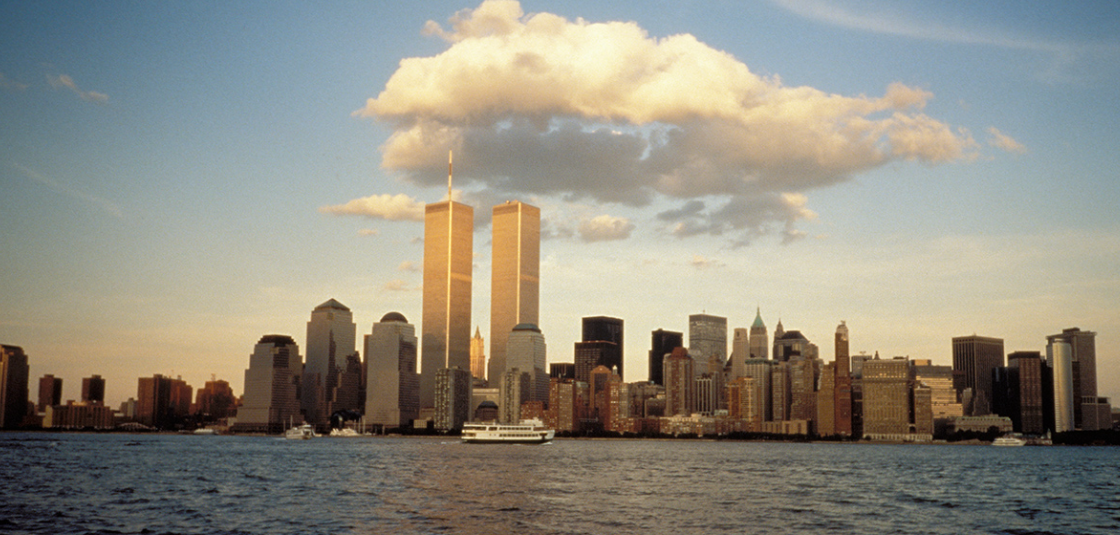9/11 Attack: A Comprehensive Overview (GS Paper 2, Terrorism)

Introduction:
- On September 11, 2001, the world witnessed one of the most devastating and transformative events in modern history.
- The 9/11 attacks, carried out by the terrorist organization Al-Qaeda, marked a critical turning point, profoundly affecting global security, politics, and perceptions of terrorism.
What Was the 9/11 Attack?
- The 9/11 attacks were a meticulously planned series of terrorist actions aimed at undermining the United States’ global standing.
- Orchestrated by 19 Al-Qaeda operatives, these attacks were intended to strike at the heart of America's financial, military, and political centers, thereby showcasing the vulnerabilities of a superpower.
The Attack Begins:
On the morning of September 11, four commercial airliners were hijacked by the terrorists:
- American Airlines Flight 11: This plane was hijacked shortly after takeoff and crashed into the North Tower of the World Trade Center in New York City at 8:46 AM.
- United Airlines Flight 175: Hijacked shortly after American Airlines Flight 11, this plane crashed into the South Tower of the World Trade Center at 9:03 AM.
- American Airlines Flight 77: This flight was hijacked and crashed into the Pentagon, the headquarters of the U.S. Department of Defense, at 9:37 AM.
- United Airlines Flight 93: The fourth plane, which was likely aimed at either the White House or the U.S. Capitol, crashed into a field near Shanksville, Pennsylvania, at 10:03 AM. Passengers on Flight 93 attempted to overcome the hijackers, causing the plane to crash before reaching its intended target.
Immediate Impact:
- World Trade Center Collapse: The impact and subsequent fires caused the collapse of both Twin Towers within hours. The North Tower fell at 10:28 AM, and the South Tower fell at 9:59 AM. This led to massive casualties, with nearly 3,000 people killed and thousands more injured.
- Pentagon Attack: The attack on the Pentagon resulted in significant damage and the deaths of 125 people, in addition to the 59 passengers on the plane.
- Flight 93: The heroic actions of the passengers prevented further destruction in Washington, D.C., making this flight a symbol of resistance against terrorism.
Rescue and Recovery Efforts:
- Following the attacks, extensive rescue and recovery operations were launched.
- Firefighters, police officers, and volunteers worked tirelessly to search for survivors amidst the wreckage.
- The scale of the devastation meant that thousands were killed, and many more were injured.
- The cleanup and recovery efforts continued for months, revealing the full extent of the destruction and the heroic efforts of those involved.
Who Instigated 9/11?
- The mastermind behind the 9/11 attacks was Osama bin Laden, the leader of Al-Qaeda.
- Bin Laden’s motivations were driven by a desire to challenge U.S. global dominance and retaliate against U.S. foreign policies in the Middle East.
- The attacks were meant to provoke a U.S. military response, destabilize the region, and draw attention to Al-Qaeda's extremist agenda.
Global Impact of 9/11:
- Changes in Security Policies: In response to the attacks, global security protocols were dramatically revised. Countries increased their focus on counter-terrorism, enhanced airport security measures, and improved intelligence-sharing mechanisms.
- War and U.S. Intervention in the Middle East: The U.S. response to the attacks led to the War in Afghanistan, targeting Al-Qaeda and the Taliban regime that harbored them. This intervention marked the beginning of a prolonged and complex conflict in the region, with ongoing implications for global politics and security.
- Economic Consequences: The attacks caused a temporary downturn in the global economy. The U.S. stock market experienced one of its largest declines, and the insurance and tourism industries suffered significant losses.
Reconstruction After the Attack:
- Pentagon: The damaged section of the Pentagon was rebuilt within a year, demonstrating the resilience and determination of the American people.
- World Trade Center Site: Reconstruction at Ground Zero began almost immediately. The new 7 World Trade Center was completed by 2006, and the One World Trade Center (also known as the Freedom Tower) was officially opened in 2013. The site now features the 9/11 Memorial and Museum, which honors the victims and provides a space for reflection.
9/11 Memorial and Tribute:
- Ground Zero Memorial: The 9/11 Memorial, located at the site of the former Twin Towers, consists of two large reflecting pools set within the footprints of the original towers. The names of the nearly 3,000 victims are inscribed around the edges of the pools. The memorial serves as a solemn reminder of the lives lost and the enduring impact of the attacks.
Secularism and 9/11:
The 9/11 attacks also had significant implications for secularism and religious tolerance:
- Impact on Secularism: The attacks heightened tensions around religious and cultural identities. In the wake of 9/11, there was increased scrutiny of Muslim communities in the U.S. and abroad. The rise in Islamophobia and anti-Muslim sentiment posed challenges to secular values that advocate for the separation of religion and state and the equal treatment of all religions.
- Policy and Societal Changes: Governments and societies grappled with balancing security measures with respect for religious freedoms. Policies and practices around surveillance, profiling, and anti-terrorism sometimes clashed with secular ideals of impartiality and equal treatment.
Conclusion:
- The events of September 11, 2001, stand as a powerful reminder of the impact of terrorism on global politics, security, and society.
- The attacks not only reshaped U.S. foreign policy and security protocols but also prompted a global re-evaluation of counter-terrorism strategies and religious tolerance.
- The resilience and solidarity shown in the aftermath of 9/11 continue to inspire efforts towards peace, security, and mutual respect.


